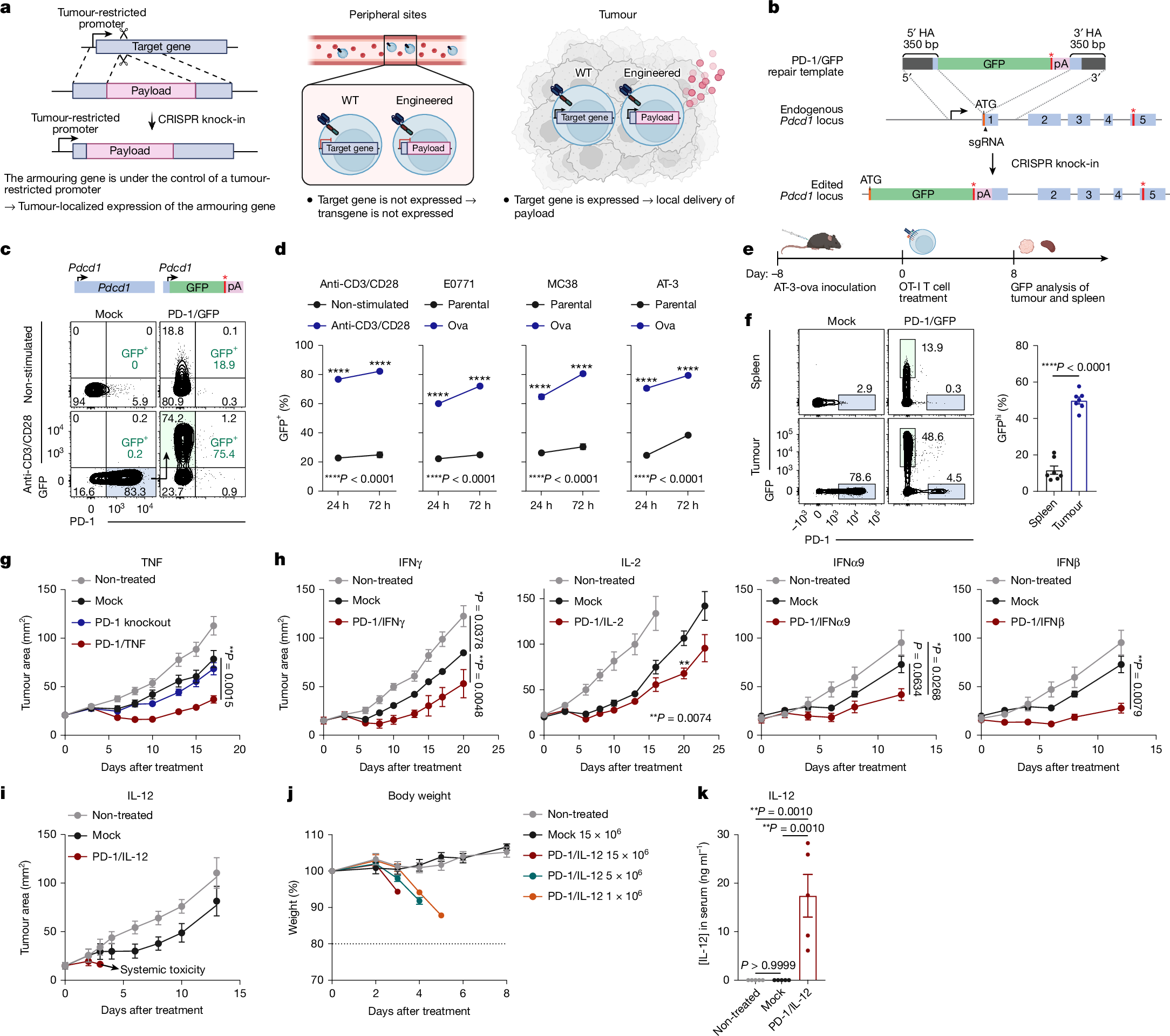Junyun Lai
@JunyunLai
Thrilled to share our article in @Nature showing that FOXO1 overexpression enhances CAR T cell persistence & metabolic fitness in treating solid cancers. Huge effort from @jack_chan15 @ChScheffler @I_mun0z, & co-led by @paulbeavis4, myself, & DarcyLab! rdcu.be/dEmg8
Excited to finally see this work come out online @NaturePortfolio. In this work we identify FOXO1 overexpression as a strategy to improve CAR T cell persistence and metabolic function using CAR T derived from mice, healthy donors and cancer patients. nature.com/articles/s4158…
Thrilled to see our own @MarinaYakou in the #ASMRSpotlight! 🤩 Her research is tackling some big questions in cancer immunology—how patient-intrinsic factors like age, hormones and our microbiome influence antitumor immunity. @TheDohertyInst @TheASMR1
June is Bowel Cancer Awareness Month. Bowel cancer is rising at an alarming rate in young people, highlighting the importance of Dr Marina Yakou’s work, an ECR from The Doherty Institute of Infection and Immunity. #ASMRSpotlight #bowelcancerawareness
Our new study showing that resident memory T cell formation and phenotype varies across the length of the gut: sciencedirect.com/science/articl… @MucosalImmunol with @LMackayLab @maxevrard @UniMelb @TheDohertyInst
Honoured to be one of this year's @CancerResearch Institute's grant recipients. Incredibly grateful for their support of our important research on discovering new immunotherapeutic targets for breast cancer. @TheDohertyInst
Congratulations Prof Laura Mackay who has secured a prestigious @CancerResearch Institute (USA) grant to advance research into novel immunotherapy targets for breast cancer. The @LMackayLab is leading the way in tissue-resident memory (TRM) cell research and how these cells can…
Congratulations Prof Laura Mackay who has secured a prestigious @CancerResearch Institute (USA) grant to advance research into novel immunotherapy targets for breast cancer. The @LMackayLab is leading the way in tissue-resident memory (TRM) cell research and how these cells can…
Nature research paper: Rewiring endogenous genes in CAR T cells for tumour-restricted payload delivery go.nature.com/4le7GMB
NR4A2 & RGS16 promoters support delivery of cytokines (e.g. IL-12) directly to the tumor site, leading to enhanced antitumor efficacy and long-term survival of mice in both syngeneic and xenogeneic models @Nature @paulbeavis4 @_amandachen @emsderrick nature.com/articles/s4158…
CAR T cells are engineered to drive tumor-restricted expression of proinflammatory cytokines by repurposing endogenous gene regulatory mechanisms nature.com/articles/s4158… #NBThighlight
Happy to share a new study led by all-star team @_amandachen, @kahmin98, @ImranHouse, Phil Darcy and @paulbeavis4 showing that tumor site-specific delivery of potent cytokines is a safe way to boost CAR T cell treatment against solid cancers! nature.com/articles/s4158…

Exciting work from the Beavis and Darcy labs using endogenous promoters to drive tumor-restricted CAR T responses. Congrats @paulbeavis4 and team!
Delighted to share our new approach to enhance CAR T cell function in solid tumours published today @Nature. In this work we identify a new strategy to generate armoured CAR T cells. nature.com/articles/s4158…
Dedicating my first post on X to share some exciting news — our work is out today in @Nature! 🎉 Co-first authored with the amazing lab buddy @_amandachen, and guided by our incredible supervisors @paulbeavis4, Phil & @ImranHouse. nature.com/articles/s4158…
Delighted to share our new approach to enhance CAR T cell function in solid tumours published today @Nature. In this work we identify a new strategy to generate armoured CAR T cells. nature.com/articles/s4158…
Excited to share that my PhD work is out in @Nature today! We engineered armoured CAR T cells to express therapeutic payloads only at the tumour site, to improve their safety and efficacy for the treatment of solid cancers. 1/14 nature.com/articles/s4158…
Excited to finally see this work in print! Big thanks to everyone who made it happen! 🔥 @TheDohertyInst @UniMelbMDHS For more, check out a related study from @hongbo_chi on pathways regulating gut TRM formation via nutrient sensing: cell.com/immunity/fullt…
1/ 🚨 Hot off the press! 🚨Our new paper, led by @ObersAndreas & @maxevrard, is now live in @ImmunityCP! 🧬 Curious how CD8+ tissue-resident memory T cells (TRM) adopt their fate in different organs? Let’s dive in! 🧵👇 authors.elsevier.com/c/1jw~j_OR~yiO…
1/ 🚨 Hot off the press! 🚨Our new paper, led by @ObersAndreas & @maxevrard, is now live in @ImmunityCP! 🧬 Curious how CD8+ tissue-resident memory T cells (TRM) adopt their fate in different organs? Let’s dive in! 🧵👇 authors.elsevier.com/c/1jw~j_OR~yiO…
CRI is proud to share the new cohort of Lloyd J. Old STARs! Meet the researchers who will receive $1.25 million over 5 years to drive high-risk, high-reward projects with the potential to transform cancer treatment and advance the frontiers of the field: bit.ly/3YAZIVd
🧬🔎Thrilled to share our latest findings on the epigenetic changes that occur post memory T cell development! Out today in @ImmunityCP! Incredible work led by @raissaf and Frank Buquicchio from team @Satpathology! 🧵👇 @TheDohertyInst @Unimelb @Stanford cell.com/immunity/abstr…
I am delighted to announce that I will soon join @TheCrick Institute in London! My lab will study how cancer affects the host "macroenvironment", especially the hematopoietic, cardiovascular, and immune systems. Sounds interesting? Join us! crick.ac.uk/research/labs/…
Bioengineered immune cells have been shown to attack and even cure cancer, but they tend to get exhausted if the fight goes on for a long time. Now, two separate research teams have found a way to rejuvenate these cells: make them more like stem cells. go.nature.com/4aIs42K
Nature research paper: FOXO1 enhances CAR T cell stemness, metabolic fitness and efficacy go.nature.com/3W0gziO
Excited to finally see this work come out online @NaturePortfolio. In this work we identify FOXO1 overexpression as a strategy to improve CAR T cell persistence and metabolic function using CAR T derived from mice, healthy donors and cancer patients. nature.com/articles/s4158…